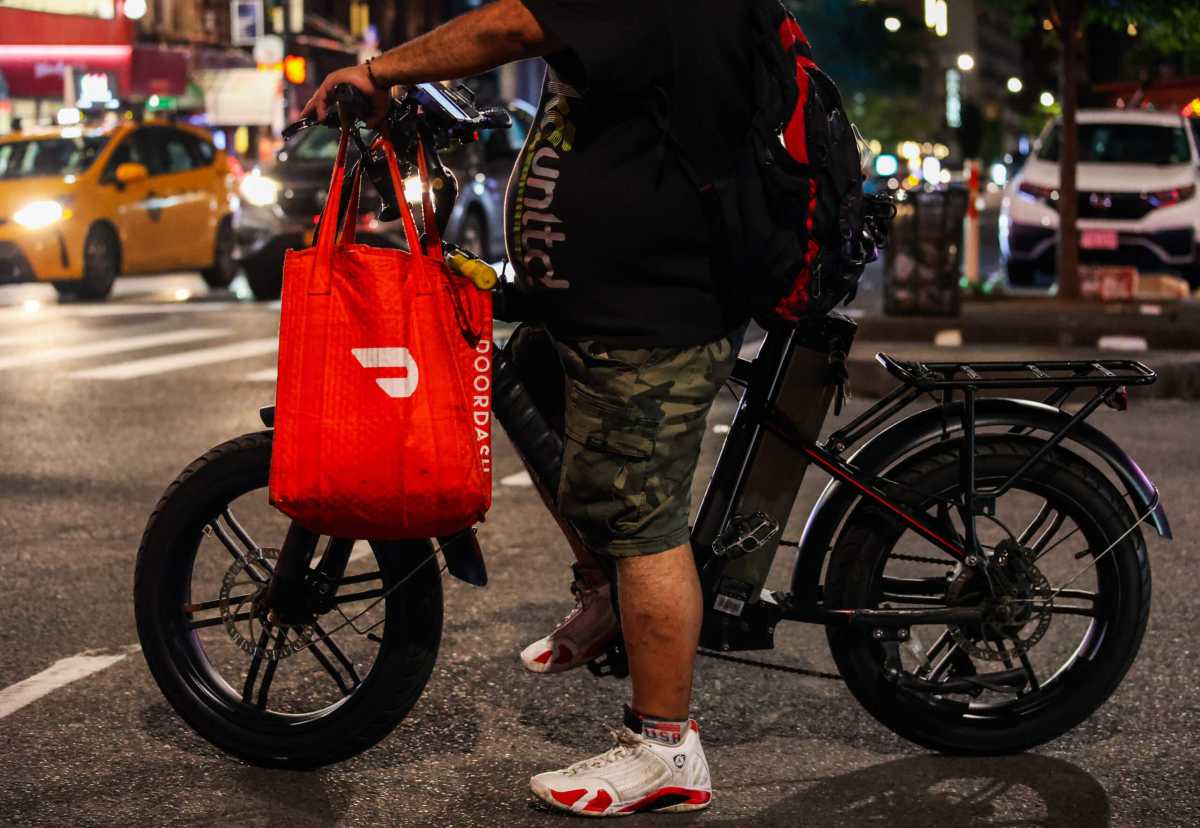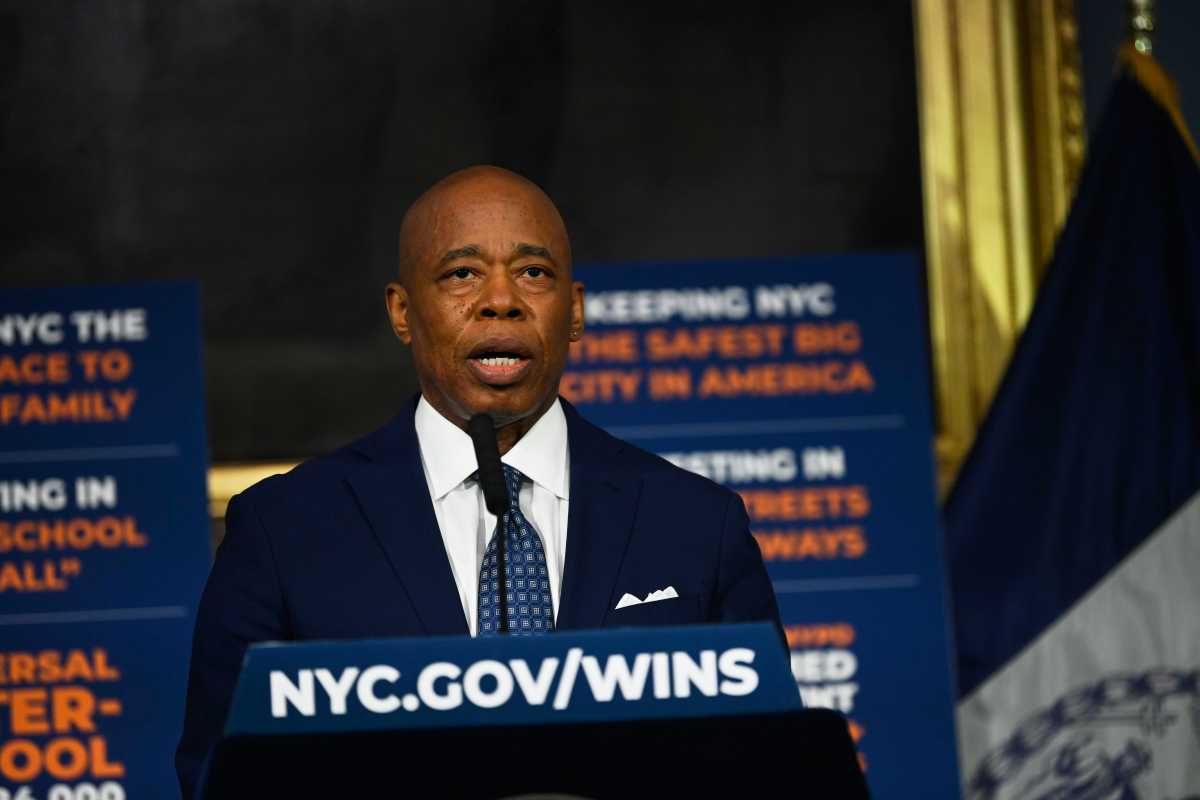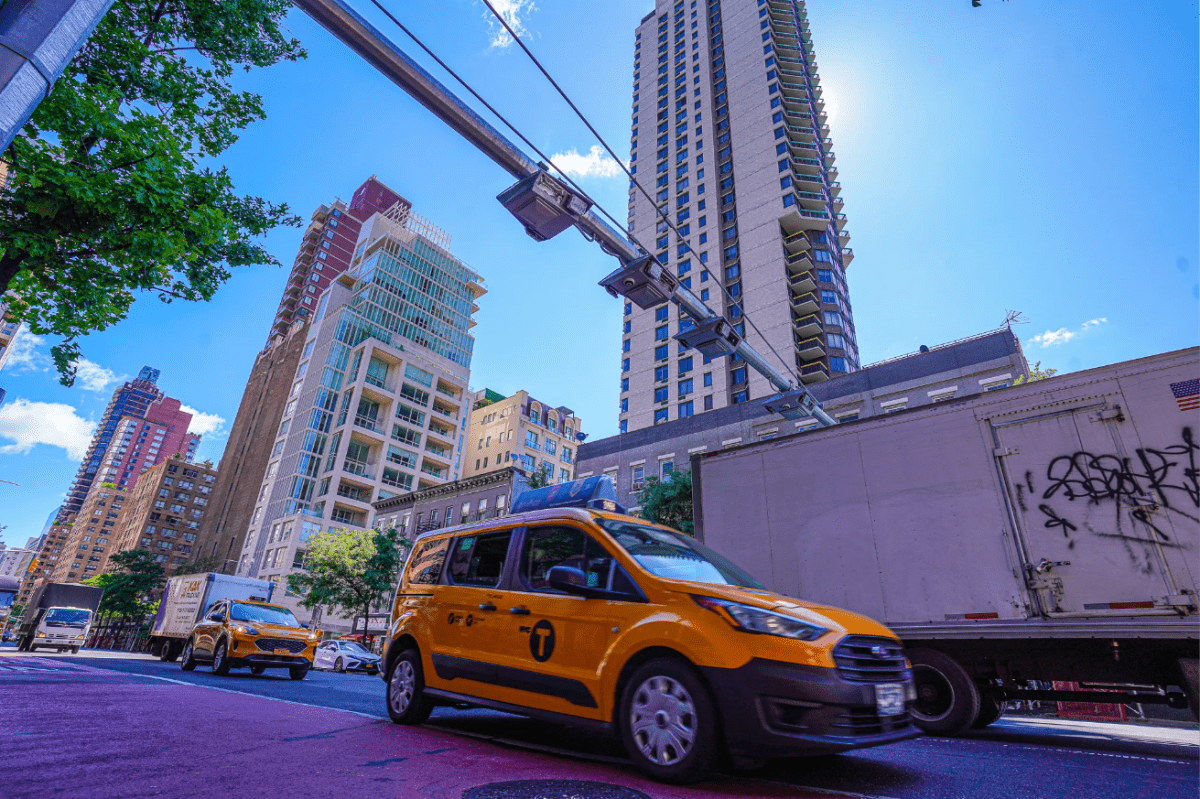The emergence of e-bikes has reshaped the streets of New York City, and they have increasingly become a way for many New Yorkers, including delivery workers, to get around and earn extra income. However, the New York City Council now may go down the wrong path with new bills that could impact how thousands of New Yorkers access e-bikes and undermine progress we’ve made on effective solutions.
The city has embraced e-bikes as an essential tool to reach its long-term goals — from reducing congestion and traffic to curbing emissions — and we share this vision. It’s why we have actively sought to help with our own initiatives to ensure they can be used safely, like supporting the FDNY Foundation’s educational efforts around safe battery charging, partnering with responsible e-bike suppliers that offer affordable options to Dashers, and working with leading e-bike advocacy groups to put forward thoughtful solutions on battery disposal.
However, an increase in dangerous fires caused by substandard lithium-ion batteries that power these devices continue to have tragic consequences. In response, the council is once again considering a pair of bills, including one from Council Member Oswald Feliz, which would require platforms like DoorDash to provide delivery workers who use them with certified e-bikes and safety equipment at no cost. But these misguided bills, which were considered by policymakers back in October, have only become more problematic in the months since.
For starters, under the city’s new minimum wage requirement for delivery workers, which specifically includes a component to reimburse workers for purchasing e-bikes, batteries, and safety equipment platforms are now paying for safe devices. Passing duplicative laws targeting a single industry on top of these minimum pay rules — which by the city’s own projections amount to nearly $50 million annually — would effectively require platforms to pay twice for e-bikes, further driving up costs and ultimately increase prices for customers while needlessly hurting small businesses if they see fewer orders as a result.
At the same time, if each company has to pay thousands of dollars to provide a free e-bike to anyone who wants one, there are likely going to have to be stricter limits on how many workers can deliver using these devices in the city — certainly not an outcome that delivery workers want, and does little to ensure the safety of all New Yorkers.
There also remain serious, unanswered questions around how these bills would work in practice. For example, if someone delivers with both DoorDash and GrubHub, which company would be responsible for providing a new e-bike to the worker? Could workers end up with multiple new devices? What if someone signs up to become a delivery worker just to get a new e-bike and then stop doing deliveries the following day? These bills are not only impractical — they’re simply infeasible.
Rather than kick the tires again on these same ill-conceived policies, it’s clear that a more comprehensive solution is needed — one that would remove dangerous products from the market, recycle them properly, and help workers find a source for affordable, safer versions.
Just a few months ago, new laws took effect to ban the sale of uncertified batteries from bike shops across the city — a welcome step to keep New Yorkers safe. Yet these same illegal and dangerous batteries remain easily available for sale to New Yorkers from popular online vendors, showing how even well-intended policies can fall short of their goals if not more carefully considered.
More practical policies that do just that have emerged at the federal level. For example, legislation in Congress, introduced by Rep. Ritchie Torres and backed by Sens. Chuck Schumer and Kirsten Gillibrand, would require a national safety standard for lithium-ion batteries powering e-bikes and a commitment from the Consumer Product Safety Commission to regulate micromobility devices in the near future. These efforts, which have bipartisan support, would directly confront the scope and scale of these challenges without creating new roadblocks.
We have arrived at a turning point for the future of e-bikes in New York City, and it’s becoming increasingly clear that we need a targeted and tailored approach if we are going to make meaningful progress. It’s critical that the policies addressing the e-bike battery crisis focus on the right issues, and take these considerations into account to keep safe e-bikes accessible for those who rely on them and our streets safe for all New Yorkers.
Kassandra Perez-Desir is the head of government relations in New York City for DoorDash.





















